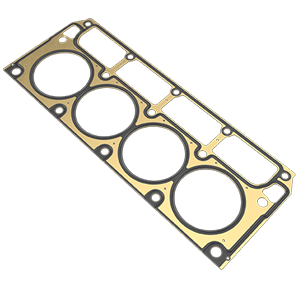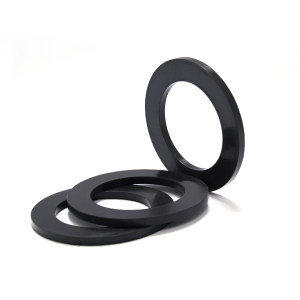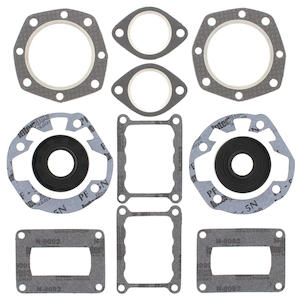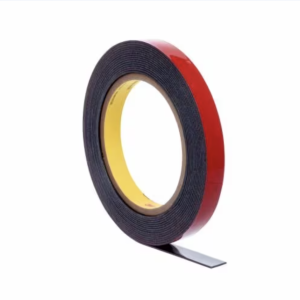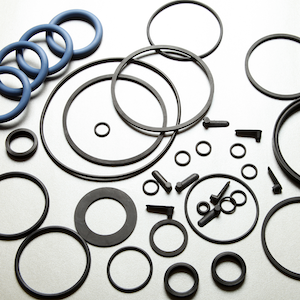A gasket is a mechanical seal that fills the space between two or more mating surfaces, usually to prevent leakage from or into the joined objects while under compression. Gaskets are made of deformable materials that can create a static seal and maintain it under various operating conditions in a mechanical assembly. Gaskets are used in many industries, such as food processing, petrochemical, pharmaceutical, water and gas, for sealing, anti-vibration, packaging, hygiene, noise and sound reduction purposes.
Gaskets have several benefits and uses, such as:
- They can fill the irregularities and deformities of the mating surfaces, making them more compatible and secure.
- They can withstand different environments, such as high or low temperatures, pressures, chemicals, acids, gases, and sometimes electromagnetic or electrical forces.
- They can protect the moving parts of an application from friction and wear by separating them from hard surfaces.
- They can prevent leakage of air or liquid, which can cause loss of efficiency, contamination, corrosion, or damage to the application.
- They can be customized to suit the specific needs of the application, such as shape, size, material, and thickness.
Gaskets are available in various materials, such as rubber, cork, paper, metal, copper, foam, polytetrafluoroethylene (PTFE), silicone, and others. The choice of material depends on the characteristics and requirements of the application, such as resistance to temperature, pressure, chemical reaction, etc. Some gaskets may require a sealant to be applied on them to enhance their sealing performance. Some gaskets are made of a combination of metallic and softer filler material (such as spiral wound gaskets) to achieve a balance between strength and flexibility.
